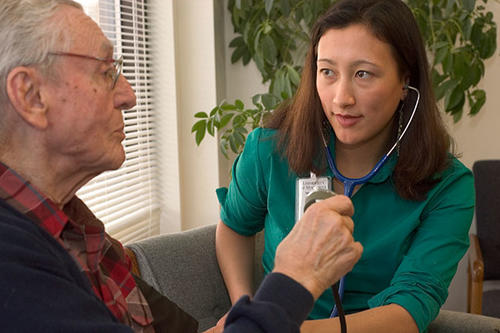
Clostridium difficile is a dangerous and debilitating bacterial infection of the gut that affects about 500,000 people—and causes nearly 30,000 deaths—in the United States every year. And its rate is increasing.
Many hundreds of people have now been successfully treated for C. difficile at the University of Minnesota, thanks to the collaboration of microbiologist Michael Sadowsky and gastroenterologist Alexander Khoruts.
Their breakthrough treatment is called fecal microbiota transplantation—FMT for short. This new approach has a cure rate greater than 95 percent and is being adopted by physicians nationwide.
The U researchers found a way to efficiently replace the gut microbiota in a sick patient with that from a healthy donor. “Your intestines are home to a large and diverse community of microbes called gut microbiota, and like the rest of your body this microbial community can become unstable and sick,” says Sadowsky.
His research team, along with Khoruts, helped standardize the approach, which has its roots in ancient Chinese medicine. The team has now developed an easy-to-use capsule form of the treatment and is exploring ways to apply the approach to many diseases and conditions, including autism, obesity, diabetes, bone marrow transplants, and ulcerative colitis.
“Microbiota therapeutics is a new frontier in medicine,” Sadowsky says.
- Categories:
- Health




